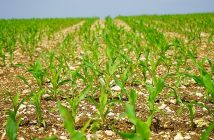"Citrus Blueberry Swirl." "Tangelo Orange Twist." "Sugar Lemon Fizz." This isn't the juice counter at the local food market (though that does sound tasty). It's the bathroom of a teenager near you.
Bath & Body Works (long known for its strongly-scented products) is offering its customers, many of whom are teenage girls, antibacterial soaps with summertime scents…and triclosan, a toxic antimicrobial chemical that accumulates in our bodies and in lakes, rivers and wildlife. This commonly used pesticide is also linked to the rise of "superbugs" – antibiotic-resistant bacteria. Umm, gross.
To add insult to injury, triclosan isn't any more effective than regular soap and water. That's why in May thousands of you joined the Campaign in urging the EPA to prohibit the widespread use of this hormone-disrupting chemical, and many of you took the "Triclosan-Free Pledge," promising to make your household free of this unnecessary chemical. (Learn more about triclosan and take the pledge.)
Now it's time to tell Bath & Body Works, which uses triclosan in an array of its body care products (the tagline: "spread love, not germs"), to phase out triclosan and protect its customers from exposure to toxic chemicals.
Major companies, like Colgate Palmolive and Johnson & Johnson, have recently agreed to eliminate triclosan from some of their products. Surely Bath & Body Works can stop its use of triclosan, too.
Tell Bath & Body Works' CEO: "Stop using toxic triclosan in your products."
Campaign for Safe Cosmetics
Tell Bath & Body Works that the pesticide triclosan doesn't belong in soaps and lotions popular with kids and teens.



